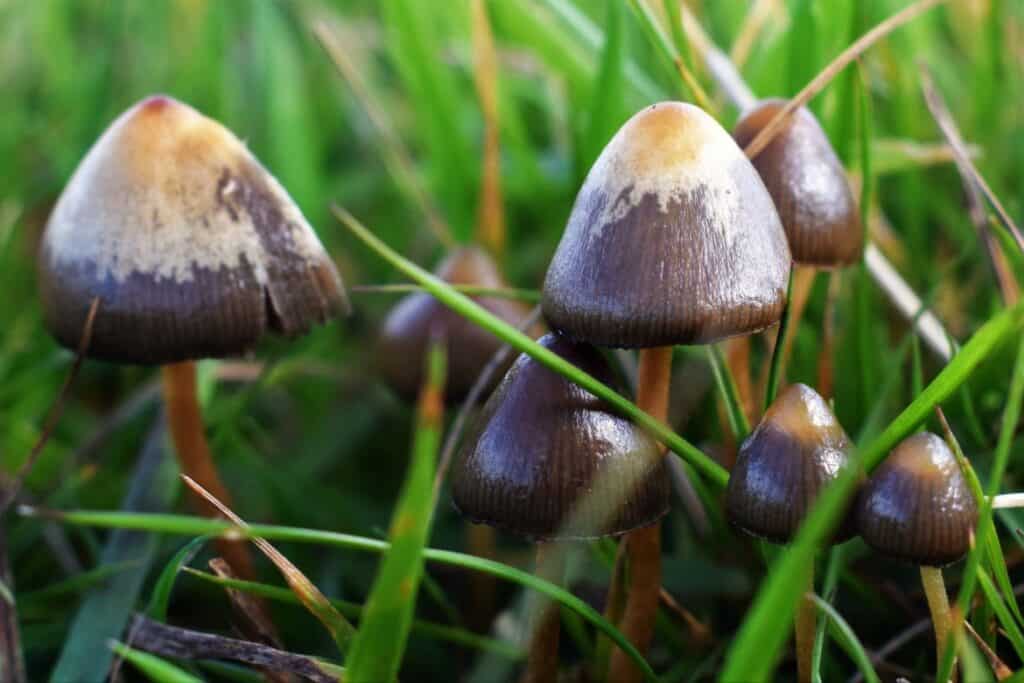Blog
Finding Hope in Psychedelics: Magic Mushrooms as a Potential Treatment for PTSD
Post-Traumatic Stress Disorder (PTSD) affects millions of people worldwide, causing debilitating symptoms that can significantly impact their daily lives. While traditional treatments have shown some success, researchers are increasingly turning to alternative therapies like magic mushrooms to explore their potential in managing PTSD. In this article, we delve into the emerging field of psychedelic-assisted therapy and how magic mushrooms hold promise as a transformative treatment for PTSD.
The Invisible Battle Within
PTSD, or Post-Traumatic Stress Disorder, is a complex and often misunderstood mental health condition that affects millions of individuals worldwide. To fully comprehend the potential of magic mushrooms as a treatment for PTSD, it is essential to delve into the nature of this disorder. In this section, we explore the profound impact that PTSD has on individuals’ mental and emotional well-being, unveiling the invisible battle that they face daily. PTSD can be triggered by a wide range of traumatic experiences, such as combat exposure, physical or sexual assault, accidents, or natural disasters. These traumatic events can leave deep imprints on the mind, leading to a variety of symptoms. Flashbacks and nightmares transport individuals back to the traumatic event, reawakening the emotions and sensations they experienced at the time. The constant state of hyperarousal and hypervigilance can be exhausting, making it challenging to relax or feel safe. Anxiety, depression, irritability, and avoidance behaviors further compound the struggle. By shedding light on the invisible battle within those with PTSD, we aim to foster empathy and understanding, and ultimately explore potential avenues for healing and relief through the therapeutic use of magic mushrooms.
The Science of Psychedelic-Assisted Therapy
Psychedelic-assisted therapy is at the forefront of innovative approaches in mental health treatment, offering a fresh perspective on addressing the root causes of PTSD. In this section, we embark on a journey into the science behind this therapy and the potential healing power of magic mushrooms. Central to this exploration is the compound psilocybin, found in magic mushrooms, and its profound interaction with the brain. Psilocybin binds to serotonin receptors, particularly the 5-HT2A receptors, resulting in altered brain activity and connectivity patterns. These changes lead to an enhanced emotional and cognitive experience, allowing individuals to confront and process traumatic memories and emotions in a therapeutic setting. Furthermore, psilocybin promotes neuroplasticity, the brain’s ability to rewire and form new connections, which is crucial for long-lasting therapeutic effects. By unraveling the science of psychedelic-assisted therapy and its impact on the brain, we gain a deeper understanding of how magic mushrooms hold immense potential in transforming the lives of individuals living with PTSD.
The Promise of Magic Mushrooms
Clinical research exploring the therapeutic potential of magic mushrooms for PTSD is yielding promising findings and shedding light on the transformative effects of psilocybin-assisted therapy. Numerous studies and trials have been conducted, examining the impact of magic mushrooms on individuals with PTSD. The results have been remarkable, showing significant reductions in PTSD symptoms, including intrusive thoughts, anxiety, and depression. Patients who have undergone psilocybin-assisted therapy report improved mood, increased emotional resilience, and a greater sense of well-being. Furthermore, this therapy has demonstrated the potential to enhance the quality of life by fostering personal growth, enhancing relationships, and providing a renewed sense of purpose. The accumulating evidence from clinical research is encouraging, showcasing the immense promise of magic mushrooms in revolutionizing PTSD treatment and offering hope to those who have previously found limited relief with traditional approaches. As the research continues to unfold, it becomes increasingly apparent that magic mushrooms hold great potential as a groundbreaking tool in the quest to alleviate the burden of PTSD.
The Road Ahead
As the therapeutic potential of magic mushrooms for PTSD treatment gains recognition, it is crucial to address the challenges and consider the future possibilities of this groundbreaking approach. One of the primary challenges lies in the regulatory and ethical frameworks surrounding psychedelic-assisted therapy. The classification of magic mushrooms as Schedule I substances in many countries restricts their use and hinders research efforts. However, as more evidence emerges regarding their safety and efficacy, there is a growing movement to reconsider their legal status and create pathways for controlled therapeutic use.
The integration of magic mushrooms into mainstream mental health care presents additional challenges. Education and training for therapists and healthcare professionals in psychedelic-assisted therapy protocols and practices need to be established. Additionally, the development of standardized treatment guidelines and protocols, along with rigorous quality control measures for magic mushroom products, will be crucial for ensuring safe and effective treatment outcomes.
Looking to the future, ongoing research holds promise for expanding the applications of magic mushrooms in PTSD treatment. Studies are exploring personalized treatment approaches, where the therapeutic experience is tailored to individual needs, including dosage, setting, and supportive therapies. Additionally, advancements in neuroimaging and neuroscience are shedding light on the neural mechanisms underlying the therapeutic effects of magic mushrooms, which can inform the development of targeted interventions.
The road ahead for magic mushrooms in PTSD treatment is both challenging and full of possibilities. Continued research, advocacy, and collaboration among scientists, clinicians, regulatory bodies, and policymakers are essential for navigating the complexities and realizing the potential benefits of this transformative therapy. With perseverance and an open-minded approach, we can hope for a future where magic mushrooms become an integral part of mental health care, offering healing and relief to those who have endured the burdens of PTSD.
Hope on the Horizon
The potential of magic mushrooms as a treatment for PTSD opens new doors of hope for individuals struggling with this debilitating condition. As research continues to progress and the therapeutic benefits become better understood, there is growing optimism that magic mushrooms, combined with professional guidance, can offer a path toward healing and recovery for those affected by PTSD. While challenges remain, the potential of magic mushrooms in revolutionizing PTSD treatment offers a glimmer of hope for a brighter future.


